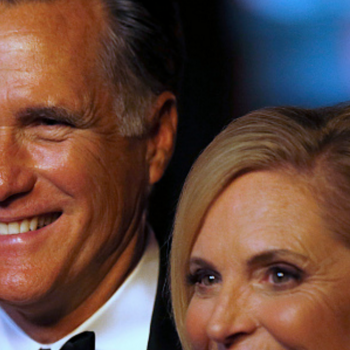Have you ever thought about how the way your family is structured might affect the way you vote on election day?
David French, at the National Review, beautifully breaks down the relationship between a person’s familial structure and what they are looking for in political candidates. In his insightful article, David steps away from partisan straw men and asks his readers to step into the shoes of voters who live in very different circumstances.
David first describes the motivations of a single mother:
Single parents and other economically vulnerable populations tend to crave security. A single mom of three public-school children working as the bookkeeper for a struggling small business may well, ultimately, be better off under an economic system that drives growth and creates better-paying job opportunities for her. But such a system must seem a remote concern when weighed against the need to pay the rent while her kids’ deadbeat dad is behind on child support, and the difficulty of affording health insurance when her employer’s contribution keeps shrinking. If the battle is between the hope of opportunity and the promise of security, won’t a rational person choose the latter every time?
David then leads his readers to imagine themselves in the place of another mother:
Now, imagine a different, married mother of three. She and her husband both work, and they make enough money that if one were to become unemployed, the family would still have enough to get by. But they don’t want to “get by.” They want their kids out of their struggling public school — there’s a great private school down the road — and on the path to a good college education. Their combined income puts them solidly above-average, but they don’t feel rich, because they can’t afford their entirely reasonable family goals: They’ve skipped vacations two of the last three years, and their Honda Pilot just passed 150,000 miles. They have security. What they want is opportunity, a chance to get just a bit further ahead. A tax and regulatory burden that depresses the job market, makes it harder to start businesses, and funnels cash directly out of their pockets is a burden — a burden that provides them with zero discernible benefits.
What is the impact of these two divergent families structures on the political realm? David writes:
Every four years conservatives and liberals look for the right messenger, the right person to make their case to the public. But you can package conservatism as appealingly as possible, and it’s still conservatism — it’s still, at base, a message of hope through opportunity and liberty, a message that’s terrifying to the most economically insecure. You can package liberalism as appealingly as possible, and it’s still liberalism — it’s still, at base, a message that millions of Americans who don’t feel prosperous, who have their own concerns and struggles, should pour more and more money into systems that won’t help their families, that won’t adequately educate their children, and that keep holding back their own hopes and dreams.
So how do we bridge this vast cultural divide? Read David’s full article at National Review, to find out his answer.
Read more on the Patheos Faith and Family Channel, follow Nancy on Facebook, Twitter, and Instagram!










